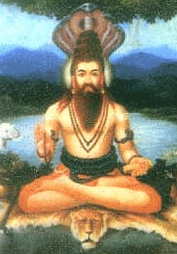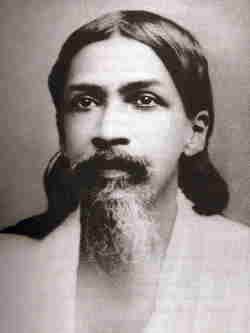SelfDefinition.Org
Greatly Inspiring Brahmacharya (Celibacy) Quotes
Compiled by Gopal Krishna

Quotes by Sri Aurobindo
Sri Aurobindo (1872-1950) was an Indian philosopher, yogi, guru, poet, and nationalist. [Wikipedia]

Sri Aurobindo
1. We have stated, as succinctly as is consistent with clearness, the main psychological principles on which the ancient Indians based their scheme of education. By the training of Brahmacharya they placed all the energy of which the system was capable and which could be spared from bodily functions, at the service of the brain. [1]
[1. Ref: [website gone] aurobindo.ru/workings/sa/37_01/0079_e.htm The Brain of India.]
In this way they not only strengthened the medha or grasping power, the dhi or subtlety and swiftness of thought conception, the memory and the creative intellectual force, making the triple force of memory, invention, judgment comprehensive and analytic, but they greatly enlarged the range, no less than the intensity, of the absorbing, storing and generative mental activities. Hence those astonishing feats of memory, various comprehension and versatility of creative work of which only a few extraordinary intellects have been capable in Occidental history, but which in ancient India were common and usual. ...
This easy and unfailing illumination crowning the unfailing energy created by Brahmacharya was due to the discipline which developed sattva or inner illumination. This illumination makes the acquisition of knowledge and all other intellectual operations easy, spontaneous, swift, decisive and comparatively unfatiguing to body or brain. In these two things lies the secret of Aryan intellectual achievement, Brahmacharya and sattwic development created the brain of India: it was perfected by Yoga.
2. The practice of Brahmacharya is the first and most necessary condition of increasing the force within and turning it to such uses as may benefit the possessor or mankind. [2]
[2. Ref: [website gone] aurobindo.ru/workings/sa/03/0049_e.htm The Harmony of Virtue.]
All human energy has a physical basis. The mistake made by European materialism is to suppose the basis to be everything and confuse it with the source. The source of life and energy is not material but spiritual, but the basis, the foundation on which the life and energy stand and work, is physical. The ancient Hindus clearly recognised this distinction between kāraṇa and pratiṣṭhā, the north pole and the south pole of being. Earth or gross matter is the pratiṣṭhā, Brahman or spirit is the kāraṇa. To raise up the physical to the spiritual is Brahmacharya, for by the meeting of the two the energy which starts from one and produces the other is enhanced and fulfills itself.
This is the metaphysical theory. The application depends on a right understanding of the physical and psychological conformation of the human receptacle of energy. The fundamental physical unit is the retas, in which the tejas, the heat and light and electricity in a man, is involved and hidden. All energy is latent in the retas. This energy may be either expended physically or conserved. All passion, lust, desire wastes the energy by pouring it, either in the gross form or a sublimated subtler form, out of the body. Immorality in act throws it out in the gross form; immorality of thought in the subtle form. In either case there is waste, and unchastity is of the mind and speech as well as of the body.
On the other hand, all self-control conserves the energy in the retas, and conservation always brings with it increase. But the needs of the physical body are limited and the excess of energy must create a surplus which has to turn itself to some use other than the physical.
According to the ancient theory retas is jala or water, full of light and heat and electricity, in one word, of tejas. The excess of the retas turns first into heat or tapas which stimulates the whole system, and it is for this reason that all forms of self-control and austerity are called tapas or tapasya because they generate the heat, or stimulus which is a source of powerful action and success; secondly, it turns to tejas, proper, light, the energy which is at the source of all knowledge; thirdly, it turns to vidyut or electricity, which is at the basis of all forceful action whether intellectual or physical.
In the vidyut again is involved the ojas, or prāṇaśakti, the primal energy which proceeds from ether. The retas refining from jala to tapas, tejas and vidyut, and from vidyut to ojas, fills the system with physical strength, energy and brain-power; and in its last form of ojas rises to the brain and informs it with that primal energy which is the most refined form of matter and nearest to spirit.
It is ojas that creates a spiritual force or virya, by which a man attains to spiritual knowledge, spiritual love and faith, spiritual strength. It follows that the more we can by Brahmacharya increase the store of tapas, tejas, vidyut and ojas, the more we shall fill ourselves with utter energy for the works of the body, heart, mind and spirit.
...
The disciplining of rajas was effected by a strict moral discipline which induced a calm, clear, receptive state of mind, free from intellectual self-will and pride and the obscuration of passion, — the famous discipline of the brahmacārin which was the foundation of Aryan culture and Aryan morale.
...